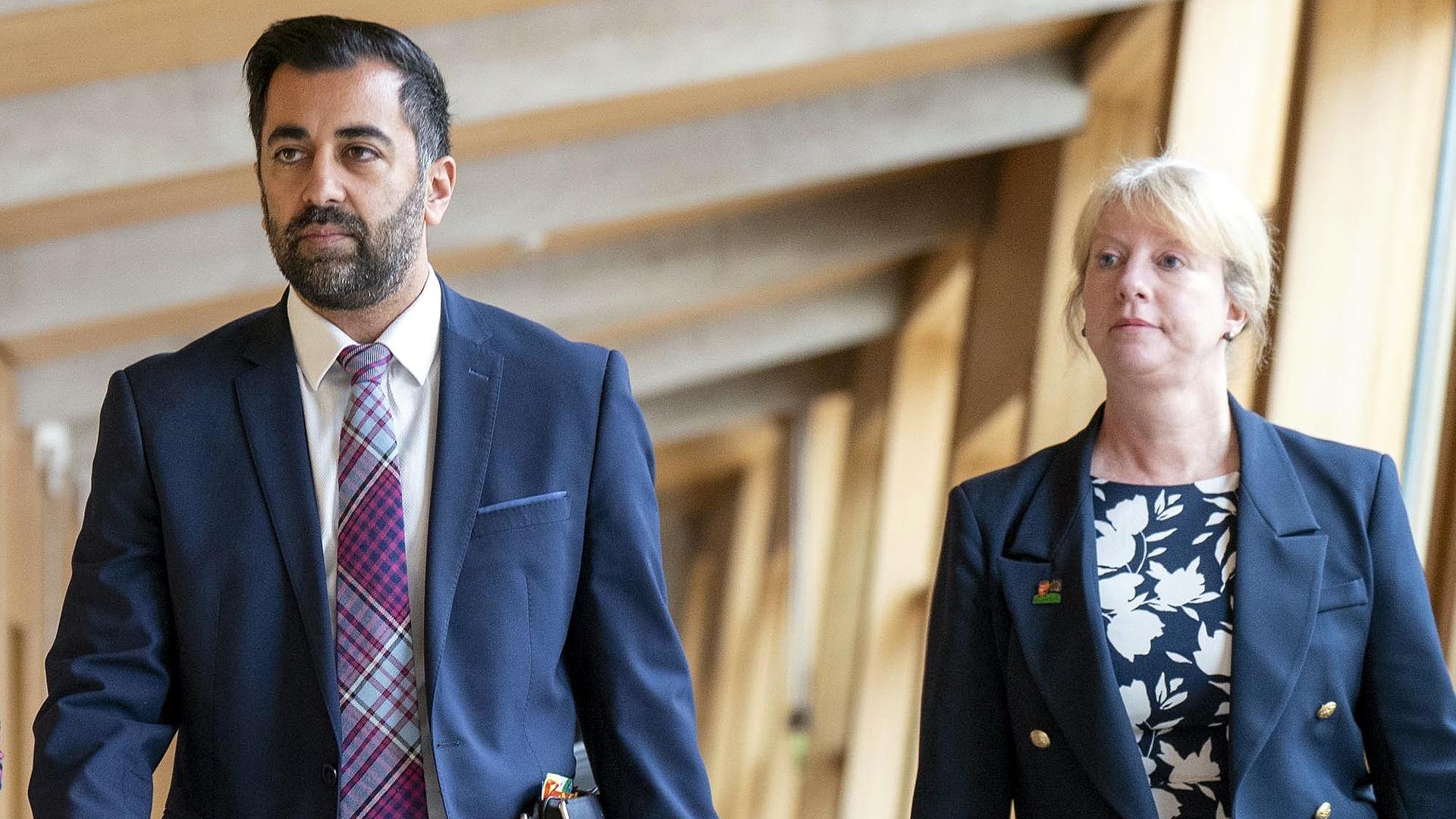Parents begin legal action over Glasgow teacher cuts
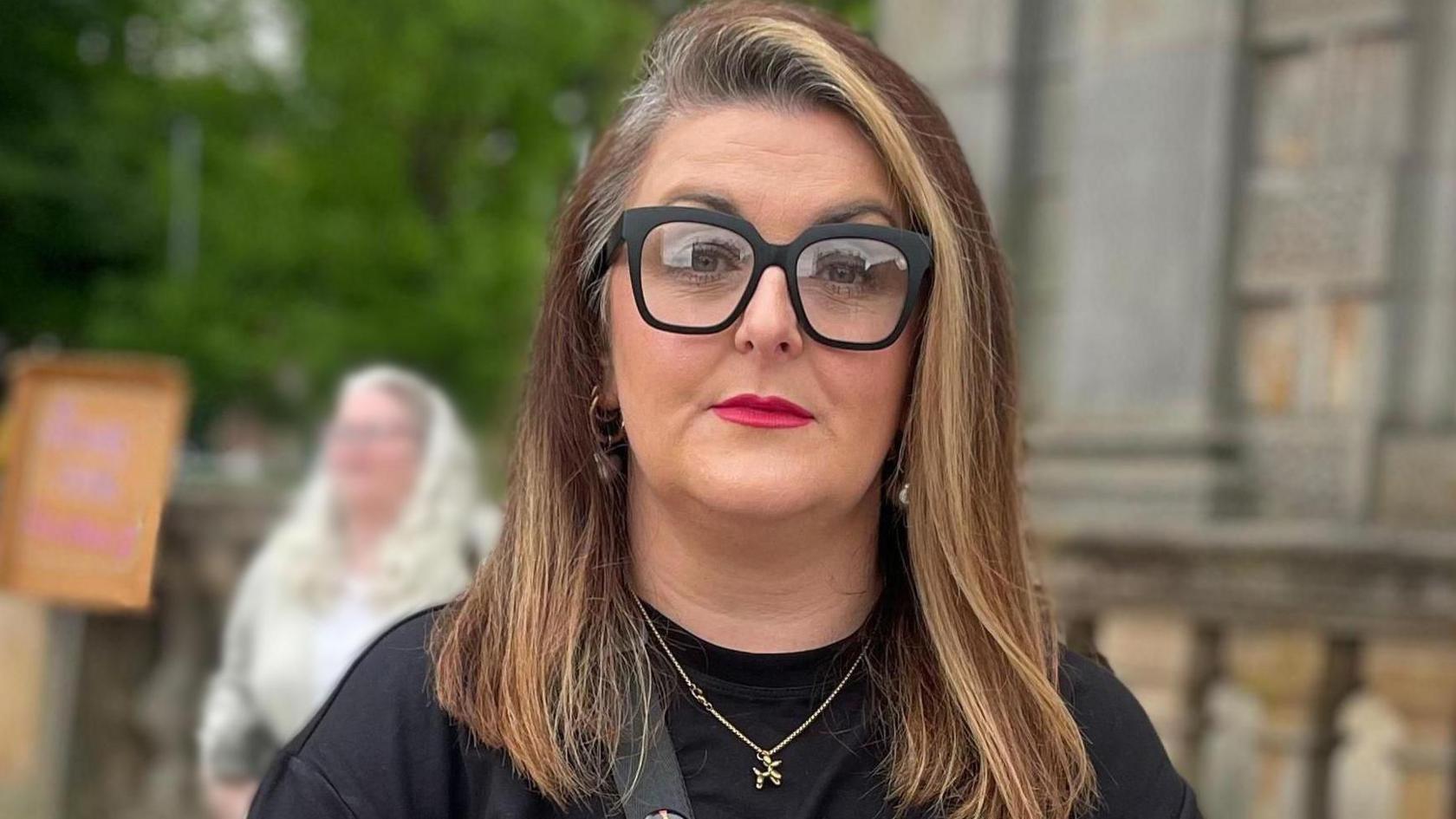
Leanne McGuire fears teacher cuts will impact every child across Glasgow
- Published
Parents in Glasgow have begun legal action over the council's plans to cut 450 teachers over the next three years.
Lawyers for Glasgow City Parents Group (GCPG) have threatened to raise a judicial review unless the local authority halts steps to implement the cuts by next week.
Leanne McGuire, who chairs the group, says reducing teacher numbers would have a "profoundly negative impact" on children - in particular primary pupils and those with additional support needs.
She said the group was left with no other option after months of holding demonstrations and writing letters to councillors and MSPs.
Glasgow City Council's budget, passed in February, made a number of council-wide cuts, including to education services.
It plans to axe 172 teaching posts this year and a total of 450 over the next three years.
However GCPG - a group that supports parents and carers and works in partnership with Glasgow's education services - said it had received confirmation that the council did not carry out a full equalities impact assessment before making this decision.
It said this was a "clear violation" of legal obligations.
Glasgow City Council said it has received the legal action and it was being reviewed by its lawyers.
A spokesperson added: “It would be inappropriate to comment further at this stage.”
Families fighting 'for years'
In recent months parents, pupils and teachers have taken part in demonstrations across Glasgow against the planned cuts, saying children's education and mental health could suffer.
Ms McGuire told the BBC that families became more aware of the impact on individual schools between March and June as schools held meetings with parent councils - but many were still uninformed.
She said it was "unacceptable" that significant decisions were made without a comprehensive understanding of their impact on all pupils - especially those who are vulnerable.
Children with additional support needs are most at risk, she said, because teachers will not have enough time to run things like small working groups or one-to-one support.
"The sad thing is, some of this support, families have had to fight for years to finally get it," she said.
"They were terrified that after fighting for it they might lose that support.
"They’re starting to see their child thrive in school – but now that journey is at threat and their child retreating backwards."
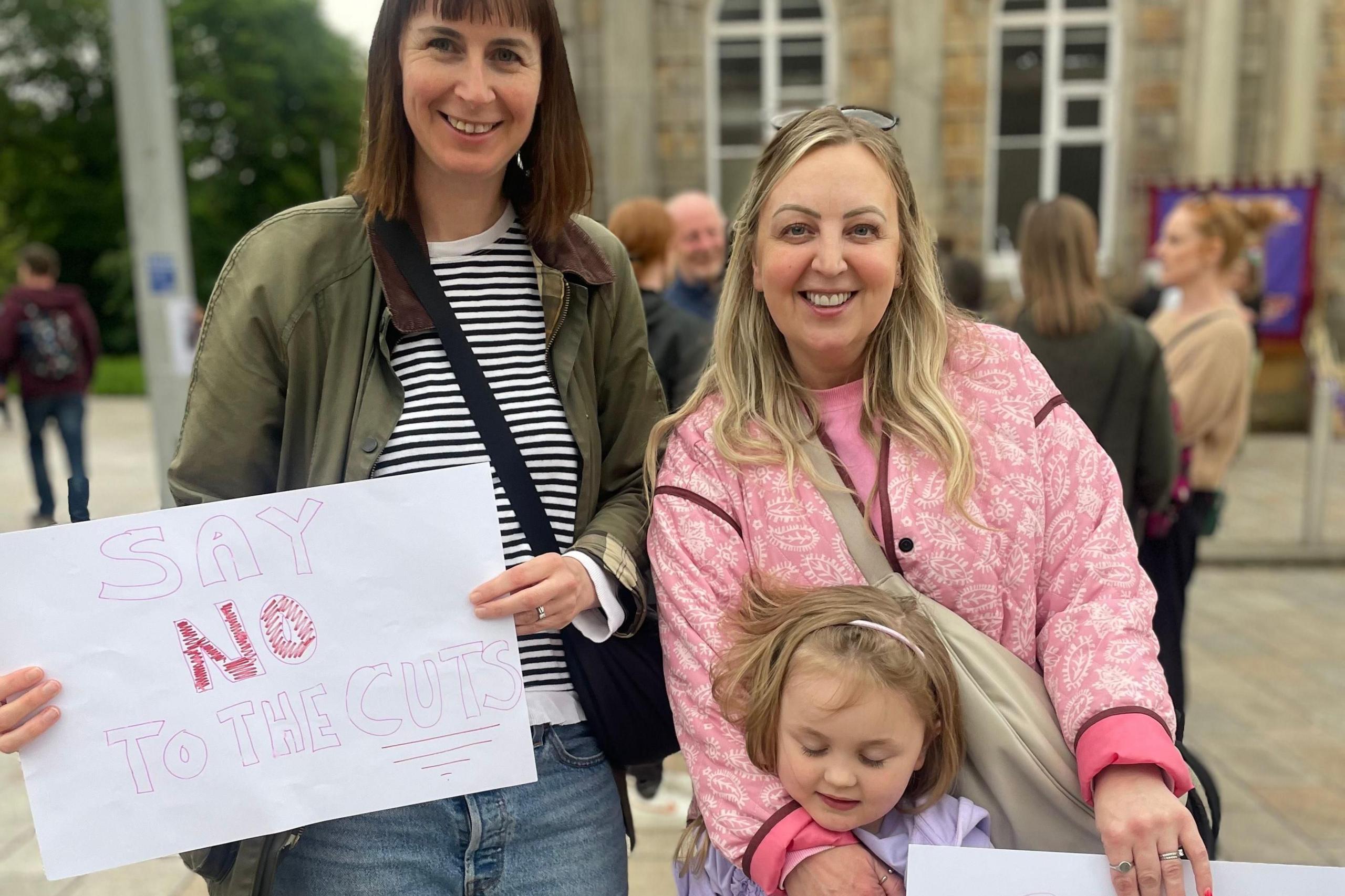
Parents, pupils and teachers joined a demo in Glasgow's southside in May
Ms McGuire said the cuts also mean that teachers will become increasingly overworked and this could increase the likelihood of strikes later in the year.
This would come after four years of disruption in schools, following school closures during the Covid-19 pandemic and widespread teacher strikes last year.
"This time round we do not blame them," she said. "Their hands have been tied as well.
"They have campaigned to change these decisions, and they can see this coming down the line – that teachers will be stressed and burned out."
Ms McGuire added: "We don’t challenge this decision for our own children; we challenge this decision for all of Glasgow’s children.
"For the families who are unable to challenge and feel they must accept any poor decision that is imposed on them."
What's happening with council funding?
Glasgow's decision to cut teacher numbers is just one of the ways councils are attempting to claw back funding while budgets are under pressure.
Falkirk Council is consulting on proposals to cut school hours from August 2025 - a move opposed by thousands of parents.
Last year Nicola Sturgeon said teaching posts would be protected from local authority cuts and that it would not be acceptable for the teaching workforce to fall.
Local government body Cosla said this was "an unnecessary and unwanted attack" on local authorities' decision-making powers.
Then in February, concerns over council budgets were raised when the Scottish government's budget passed its final vote.
It included funding for a council tax freeze but a dispute arose between the government and Cosla, which said council leaders had not been consulted and not enough money was being provided to cover the policy.
Councils have also been under pressure to give staff improved pay deals - bin strikes are currently on hold while union members consider a deal partly funded by the Scottish government.
Finance Secretary Shona Robison has said the government had made record funding available to local authorities this year.
But according to the Accounts Commission, the public spending watchdog, councils will need to take ever tougher decisions in the coming years to balance their budgets.
It said most of the extra Scottish government money that local authorities had been given was ringfenced for particular policies and pay.
Related topics
- Published17 May 2024
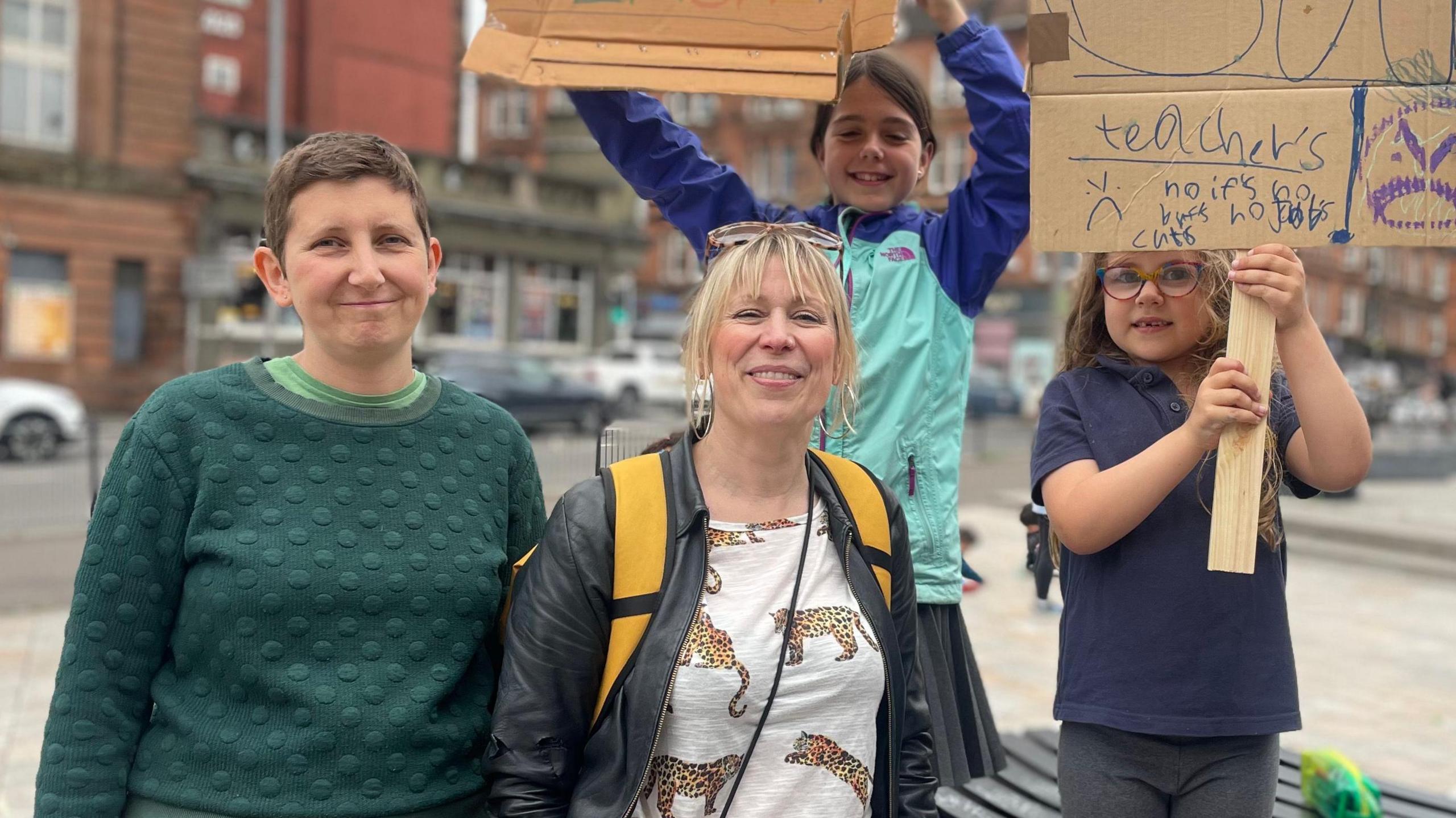
- Published15 May 2024
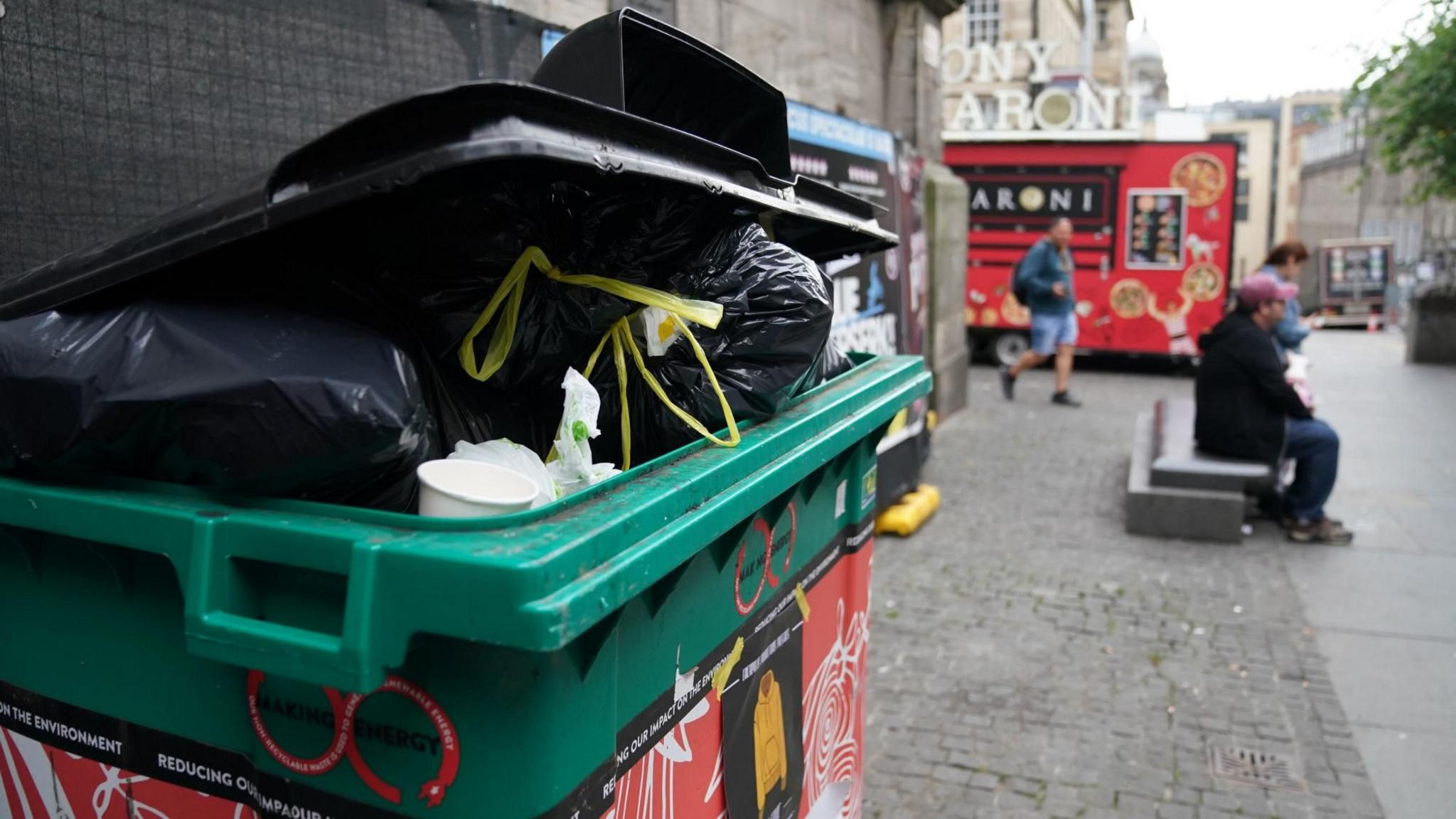
- Published27 February 2024
